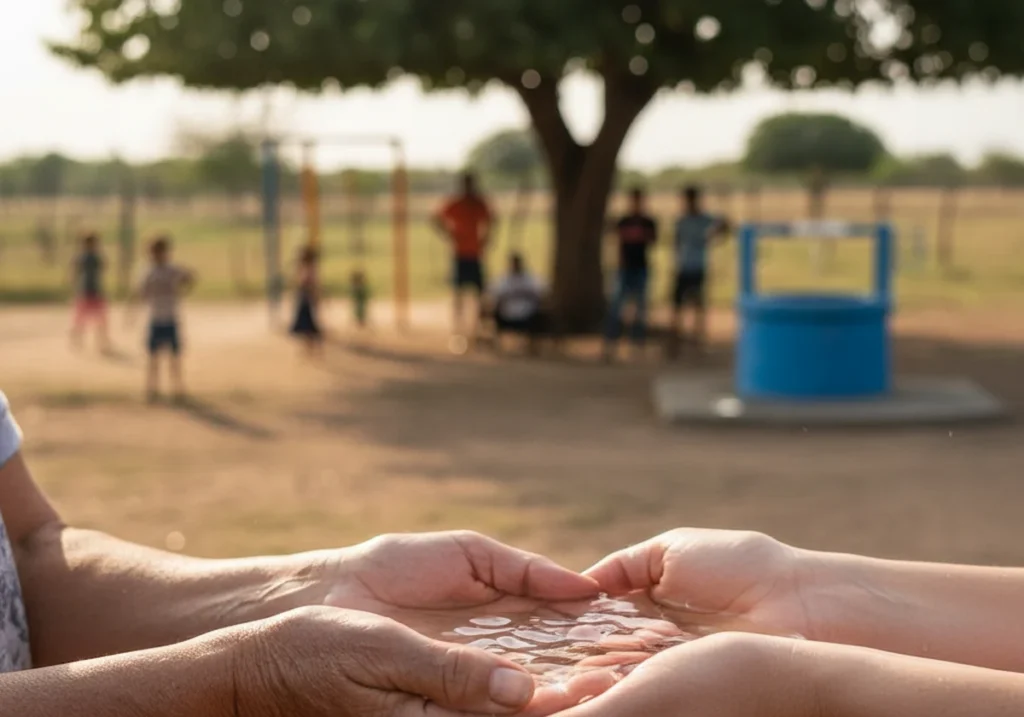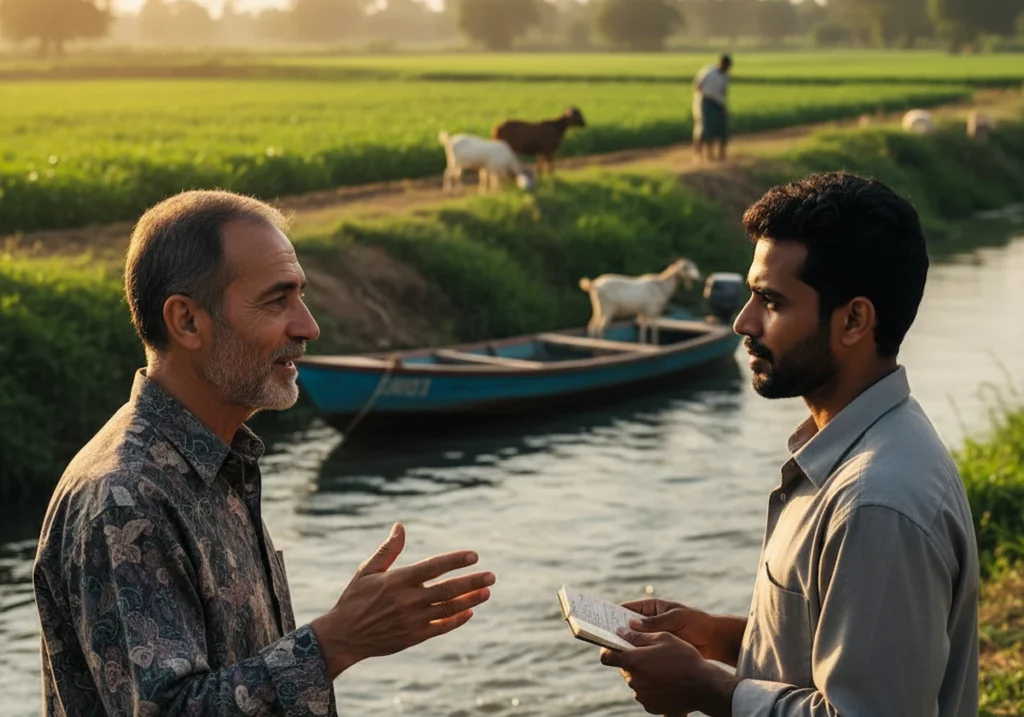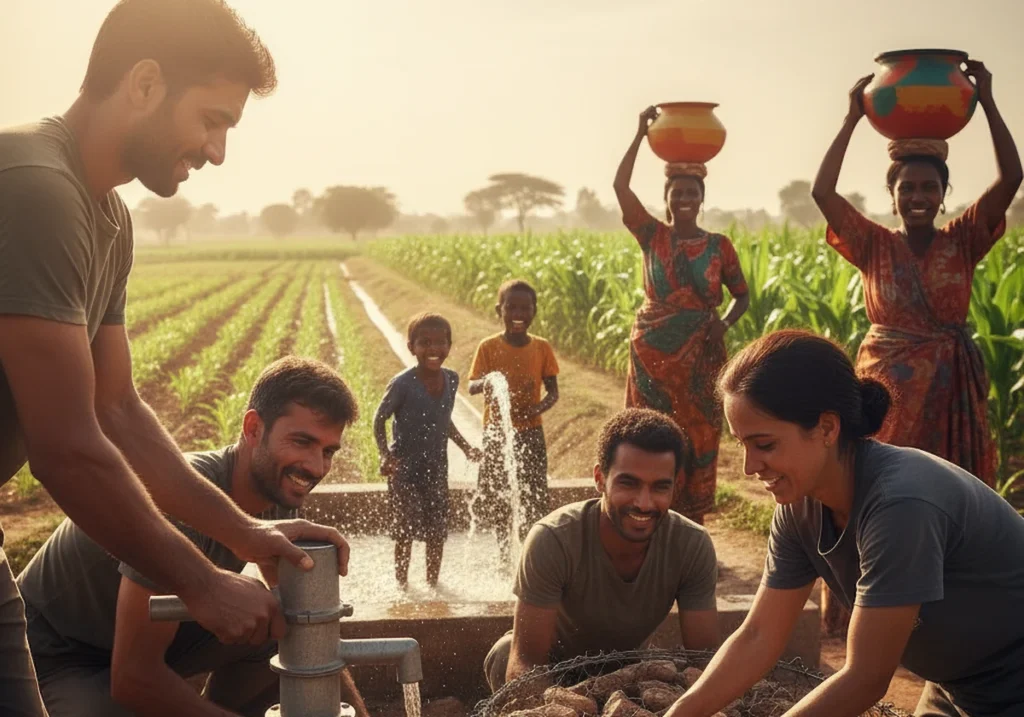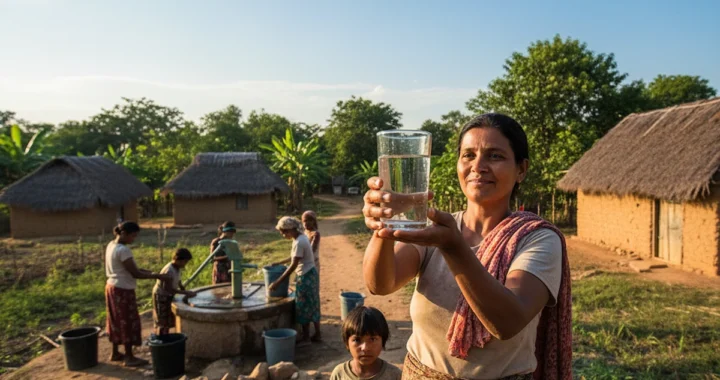Access to clean water restores dignity and hope by giving families the chance to focus on building better futures instead of searching for safe drinking water.
When you can’t access clean water, daily life becomes a constant struggle. You spend precious hours collecting water from distant sources and worry constantly about your family’s health.
Also, your children miss school because they’re helping fetch water or recovering from waterborne illnesses. That’s why clean water represents the difference between mere survival and living.
In this article, we’ll cover:
- How safe water connects to human dignity and basic rights
- The economic opportunities that emerge when communities gain water access
- The psychological benefits of water security on mental health and confidence
- How water systems are built through community leadership and partnerships
Read on to discover how clean water creates ripple effects of positive change worldwide.
The Link Between Safe Water and Human Dignity
What does human dignity look like in a world without clean water? If you think about it, without access to clean water, your dignity slowly disappears.

Rather than planning for the future, you spend your days worried about basic survival. Your children get sick from dirty water, and you can’t do anything to stop it. But if families can drink safely without walking hours each day, parents can work and children can stay healthy for school.
Let’s look at why this is so important from a human rights perspective and who bears the heaviest burden.
Safe Water as a Basic Human Right
According to the UN (United Nations), clean water is a basic human right that everyone needs to live well. Back in 2010, world leaders agreed that every person should have access to enough water for drinking, cooking, and washing. This water must be safe, clean, and affordable for everyone.
Yet millions of people from the global population still lack this basic right. If your communities can’t access clean water, families lose hope for better days ahead.
The Hidden Toll on Women and Girls
The daily collection of water places an unequal burden on women and girls. When there’s no water at home, women and girls fetch water for 7 out of 10 households and spend 200 million hours daily. This time could be better spent at school, earning income, or caring for family.
Also, a lack of private toilets and sanitation access at school puts girls’ education and dignity at risk. They often miss classes during menstruation or drop out entirely when facilities aren’t safe or private.
So this creates a cycle where girls can’t get the education they need to improve their lives.
Now that you understand how water connects to basic human rights, let’s look at how access changes entire communities economically.
Water Access: The Foundation for Economic Progress
In a society where people spend their entire day searching for water, economic growth just isn’t possible. The thing is, communities can’t build businesses or improve their lives when survival takes up all their time.
However, when clean water becomes available nearby, everyone suddenly has hours to invest in education, work, and planning for the future.

Here’s how water access creates the foundation that allows communities to grow and prosper.
Unlocking Time for Education and Livelihoods
Time becomes a valuable resource when families gain water access near their homes. Once families no longer need to walk for hours, clean water spares time that can be redirected towards education and income-generating activities.
Here’s how communities benefit from having safe water nearby:
- With clean water, families have more time to work and earn a living.
- Kids can attend school regularly instead of walking long distances for water.
- Farmers can focus on growing crops without worrying about water scarcity.
When a reliable water system provides access to clean water, entire communities get a chance to plan ahead. It’s like removing a heavy weight that’s been holding everyone back.
Building Healthy Communities Through Sanitation
After families secure clean water, the next priority is proper sanitation for the community. It’s a common issue that dirty water spreads diseases like cholera and dysentery through entire neighbourhoods.
But proper sanitation systems prevent contaminated water from making people living in close quarters sick, and save families money on medical bills.
We’ve seen communities with proper sanitation see their health improve dramatically within just a few months of using new systems. That’s what happens when you stop the cycle of waterborne illness.
WASH Programmes and Their Benefits
WASH programmes combine water, sanitation, and hygiene education for better health. Usually, these programmes are arranged by non-profit organisations working with local governments to create lasting change in communities.
What’s more, these programmes teach children at school about hygiene and set them up for a healthier future. The reason WASH works so well is that it addresses all three areas together, so communities get complete protection.
Once you understand how water changes communities economically, the next thing we need to look at is how clean water affects people’s mental well-being.
The Psychological Impact of Clean Water
The physical benefits are obvious, but clean water impacts a person’s inner well-being in ways that are just as important. One great example of this is how parents in water-secure communities report feeling more optimistic about their children’s futures.
And in this section, we’ll look at how access to safe water changes the way people feel about themselves and their future.
A Sense of Security and Confidence
When you have a reliable water supply, stress about your family’s health, your children’s future, and daily survival starts to disappear.
What makes dignity through clean water so powerful is that families can wake up each morning knowing their children will have safe drinking water throughout the day. The constant worry that comes with water scarcity gets replaced with hope for what tomorrow might bring.
We once helped a village in South Sudan install its first clean water system. After just two weeks, they shared how disputes between families had reduced dramatically because people were no longer picking fights over water.
Finally, water security had brought the village the peace it deserved.
Reducing Mental Health Burdens from Water Scarcity
If there’s one thing that creates ongoing stress, it’s not knowing where your next clean drink will come from. Even a study shows that water insecurity significantly increases rates of depression and anxiety among affected populations.
After all, it’s hard to stay positive when you’re constantly worried about your family’s basic survival needs.
But communities that gain reliable water access often see mental health improvements, as there’s no longer constant anxiety about tomorrow’s water supply. The best part is that people start making long-term plans and feel more connected to their neighbours again.
Since we’ve seen how water affects both communities and individuals, the next thing we need to look at is how investing in water systems can restore humanity on a larger scale.
Investing in Water Systems and Restoring Humanity
Water systems restore dignity by giving families control over their basic needs, create economic opportunities, and strengthen communities by reducing conflict over scarce resources.
That’s why, when we invest in water infrastructure, we’re investing in human potential and community wellbeing at the deepest level.

Here’s how different organisations work together to create lasting change in communities worldwide.
Community-Led Drinking Water Solutions
Community-led water solutions are the most sustainable approach to addressing water scarcity. When community members take ownership of their water systems, maintenance becomes everyone’s responsibility rather than an outside organisation’s burden.
Also, any small community that manages its own water source can adapt quickly to changing needs and ensure the system works for generations.
The result is that more families get reliable access because local ownership means local commitment to keeping systems running properly.
The Role of Non-Profit Organisations and Government Initiatives
Who can tackle water challenges on the scale needed to help millions of people? Well, the answer involves partnerships between governments, international bodies, and non-profit organisations working together.
Often, non-profit organisations provide the on-ground expertise and community connections, while governments create policies and infrastructure funding. At the same time, the UN coordinates global monitoring to make sure help goes to places that need it most.
One of the UN’s Sustainable Development Goals (SDG 6) aims for better management of water and sanitation access for everyone by 2030.
If that goal is achieved, it would mean an end to the water crisis that currently affects billions of people worldwide.
Clean Water Changes Everything
Many people don’t realise how much impact water access has on human dignity and community wellbeing. The reality is, when you don’t have clean water nearby, you see families trapped in cycles of poverty, illness, and lost opportunities.
In this article, we’ve explored how clean water restores human dignity, creates economic opportunities, improves mental health, and strengthens entire communities. These changes happen when people gain reliable access to safe drinking water and proper sanitation facilities.
Now you can be part of the solution. Our team at Easy510 has spent 25 years developing sustainable water solutions for communities in need.
Contact us today to learn how your support can bring clean water, dignity, and hope to families worldwide.

